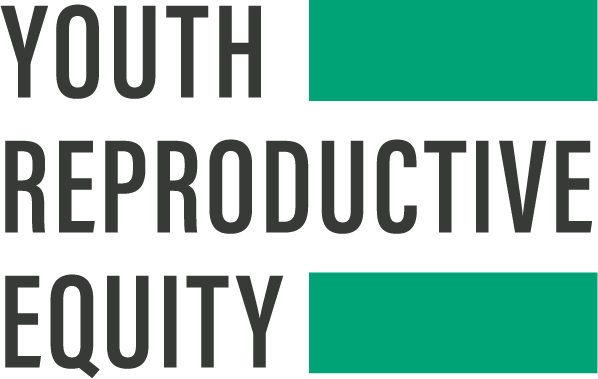Publications
Journal Article
Researcher and Institutional Review Board Considerations for Sexual and Reproductive Health Research with Minor Adolescents
This guidance document provides sexual and reproductive health (SRH) researchers, Institutional Review Boards (IRBs), research ethics committees, and funders with the knowledge and tools necessary for the appropriate inclusion of minor adolescents in SRH research. Highlighting the importance of explicit inclusion of adolescent minors in SRH studies, authors provide expert insight into how to meaningfully integrate young people in rigorous, high quality research.
“The participation of minors in [sexual and reproductive health research (SRH)] is crucial to understanding SRH across the population life course. Researchers and institutions that support and promote research should facilitate strategies for adolescent participation. To support equity, researchers must strive to assess methods to engage historically marginalized adolescents in research and to safeguard special populations of adolescents from increased harm.”
View Article →
Journal Article
Adolescent-Centered Sexual and Reproductive Health Communication
This JAMA Insights explores how clinicians can effectively communicate person-centered health care information to adolescents regarding sexual and reproductive health, contraception, and sexually transmitted infection testing and treatment.
“Adolescents vary in their knowledge of sex, reproductive health, and contraception, and they need developmentally tailored communication to support reproductive autonomy and shared decision-making, regardless of gender or sexual orientation.”
View Article →
Journal Article
Implications of Abortion Restrictions for Adolescents
This study, published in JAMA Pediatrics, is the first to examine in detail the experiences of adolescents after states enacted restrictions on abortion access following the 2022 Dobbs v. Jackson Women’s Health Organization Supreme Court decision. YRE researchers found that more than 7 million American adolescent girls ages 13 to 17 currently live in states with abortion bans, restrictive gestational limits or parental involvement requirements. These findings illustrate that nearly two thirds of pregnancy-capable minor adolescents face severe obstacles to accessing abortion care in their home states.
“More than 7 million adolescents live in states with abortion bans, restrictive gestational limits, or parental involvement requirements. Means of accessing abortion by circumventing geographic restrictions that are available to adults (eg, traveling to another state or using telehealth) are less accessible to adolescents due to cost and logistical barriers, leaving them disproportionately affected by geographically based restrictions.”
View Article →
Journal Article
Partnering With Youth Researchers in a Dynamic Reproductive Health Policy Landscape
View Article →
Journal Article
Young People's Perceptions of Why Sexually Active Peers May Not Use Prescribed Contraception
View Article →
Journal Article
Adolescents' Political and Personal Responses to Recent Policies Restricting Abortion and Gender-Affirming Care
View Article →
Journal Article
Tubal Sterilization And Vasectomy Increased Among US Young Adults After The Dobbs Supreme Court Decision In 2022
This study investigates young people’s use and perceptions of tubal sterilization and vasectomy after the 2022 United States Supreme Court Dobbs v. Jackson Women’s Health Organization decision. Results of this mixed method analysis found that young adults increasingly obtained permanent contraception post-Dobbs, especially in states deemed likely to ban abortion. Further findings demonstrate that this policy shift is influencing young people’s contraceptive choices, pregnancy plans, and perceived bodily autonomy. These results show the new and ongoing harms of abortion restrictions and highlight system-level changes needed to promote young people’s reproductive health and greater bodily autonomy.
“[Participants] expressed fear not only about their own bodily autonomy but also about living in a country they would not want to bring children into.”
View Article →
Adolescents and Young Adults’ Sources of Contraceptive Information
This study examines how young people would like to receive information about contraceptive and where they actually receive it. Researchers found discrepancies between young peoples’ preferred and actual sources of information and that those who learned from their preferred source were more likely to report having sufficient information on contraception. Additional findings from this research highlight the significance of learning about contraception from a preferred source and the continued value of parents and clinicians as sources of contraceptive information.
“With inequitable access to school-based sex education, online misinformation, and increasing health care restrictions, understanding [adolescents and young adults’] receipt of contraceptive information is crucial.”
View Article →
Journal Article
The Role (And Limits) of Developmental Neuroscience in Determining Adolescents’ Autonomy Rights: The Case for Reproductive and Voting Rights
Drawing from the work of developmental scientists, this article illustrates how overly simplistic characterizations of adolescents’ brain development and maturity impact popular and public policy discussions about adolescents’ autonomy rights. Focusing on the examples of reproductive and voting rights, authors argue that a more nuanced consideration of the most recent developmental and neuroscientific evidence supports adolescents’ ability to engage in the deliberative decisions inherent in both reproductive health and voting decisions.
“Although developmental science has articulated adolescents’ competencies and adopted a strengths-based approach to understanding and promoting adolescent development [the public and policy makers] do not yet have the language with which to apply specific neuroscientific and developmental evidence to different types of real-world decisions adolescents face and the policies that govern them.”
View Article →
Journal Article
Assessing Healthcare Utilization Post-Pharmacist Contraception Prescribing Among College-Age Students
View Article →
Journal Article
Knowledge Gaps and Information Needs and Preferences regarding Oral Contraceptive Pills and Over-the-Counter Access: A Focus Group Study with Black and Latinx Young People Assigned Female at Birth.
View Article →
Journal Article
The Perceived Impact of a Post-Dobbs Landscape on U.S. Adolescents and Young Adults
View Article →
Journal Article
Journal Article
Journal Article
A Pediatric- and Adolescent-Focused Medication Abortion Curriculum for Multidisciplinary Trainees
View Article →
Journal Article

